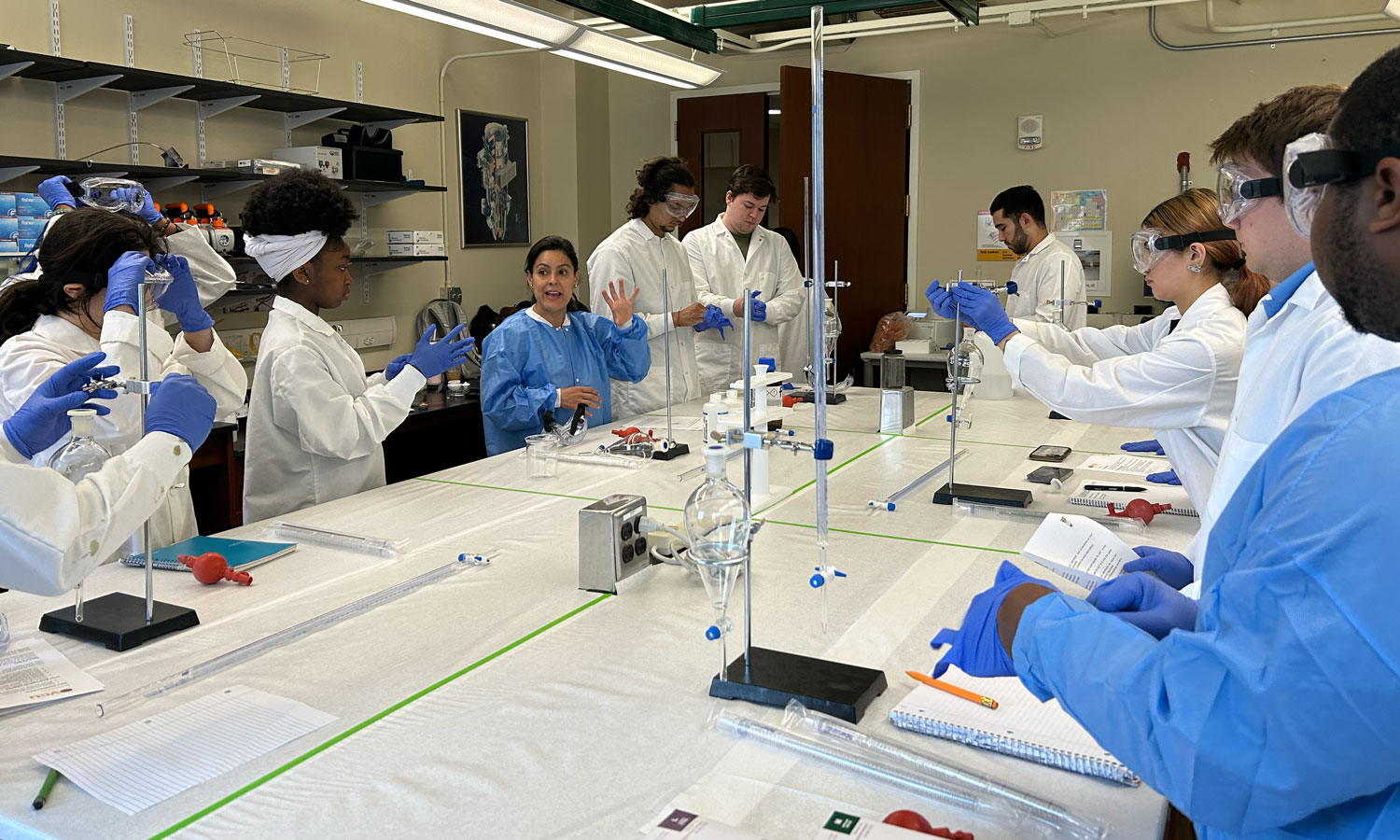Nuclear science summer program gives students introduction to isotope production and radiochemistry

Undergraduate students from Virginia Commonwealth University, Virginia State University and Virginia Union University recently completed an intensive summer immersion program in nuclear science. Funded by the Office of Isotope R&D and Production at the Department of Energy (DOE), the VCU program is part of the Minority Serving Institutions for Manufacturing Sustainable Isotopes and Mainstreaming Scientific Inclusion (MSI3) project.
“The goal of this course is to teach students from different degree paths, including some outside nuclear engineering, the fundamentals needed to produce isotopes,” said Jessika Rojas, Ph.D., mechanical and nuclear engineering associate professor, Co-PI in the project and the course instructor. “The applications of isotopes are far ranging and can encompass things like diagnostic imaging and cancer treatment.”
Based on EGMN-491: Fundamentals of Isotope Production and Radiochemistry, the summer program covered topics like nuclear reactions, radioactivity, radiation safety, radiochemical methods, isotope assay techniques and radiation transport simulations. In addition to classroom instruction, students participated in laboratory experiments and a two-week visit to Oak Ridge National Laboratory.
Students toured the state-of-the-art facilities at Oak Ridge National Laboratory like the Graphite Reactor, High Flux Isotope Reactor, Radiochemical Engineering Development Center, Spallation Neutron Source, Additive Manufacturing Facility, and Summit supercomputer. They also had the chance to interact with scientists and engineers working on cutting-edge projects in nuclear science.
At the VCU College of Engineering, students had the opportunity to participate in several experiments. In one lab, they learned about neutron counting using He-3 gas-filled detectors and the effects of moderating and shielding materials. Participants also used scanning electron microscopy and X-ray fluorescence as techniques for imaging and elemental analysis of nuclear materials. Another lab had students conduct liquid-liquid extraction experiments to learn about the principles of separating compounds based on their solubilities in different immiscible liquids.
“Dr. Rojas’ course gives students a jump start on their careers,” said Braden Goddard, Ph.D., mechanical and nuclear engineering associate professor. “These are essential skills applicable in many fields ranging from medicine to nuclear science.” Goddard is the primary investigator on the grant supporting MSI3 and the summer program.
With opportunities to learn from experts in the field and gain hands-on experience, the MSI3 project at the VCU College of Engineering provides students from underrepresented communities the ability to learn needed engineering skills. It is part of the DOE’s initiative to build a diverse STEM workforce.
The Department of Mechanical and Nuclear Engineering provides undergraduate and graduate students with the opportunity to perform real-world research as soon as they enroll. From applying material science to additive manufacturing techniques to optimizing coolant systems for nuclear reactors and more, students gain understanding of many important engineering topics. Browse videos and recent news from the Department of Mechanical and Nuclear Engineering to discover how the College of Engineering at Virginia Commonwealth University prepares the next generation of scientists and engineers for the challenges of the future.
Categories Mechanical & Nuclear Engineering, Nuclear Engineering, Student Stories, Undergraduate Student Stories